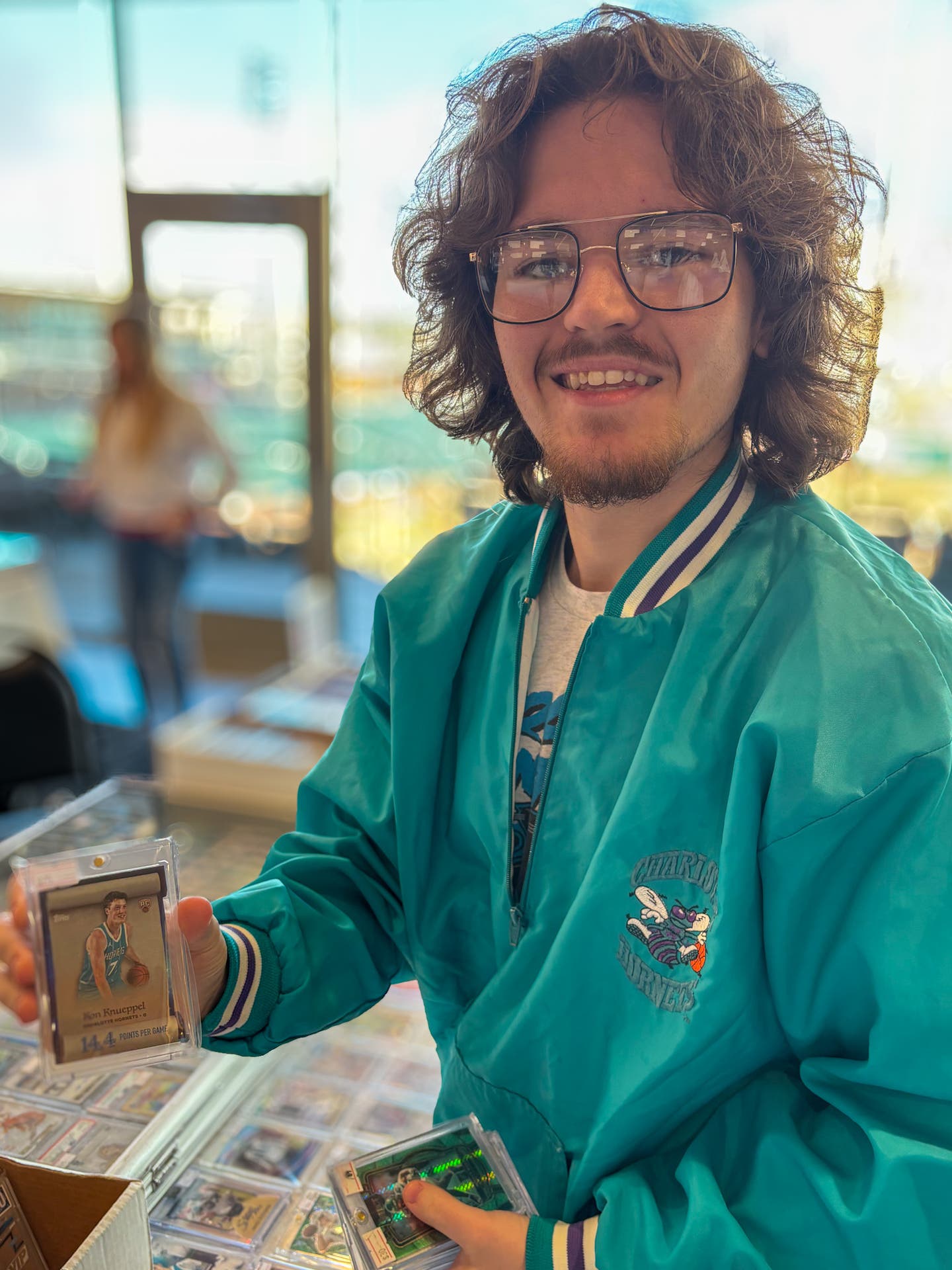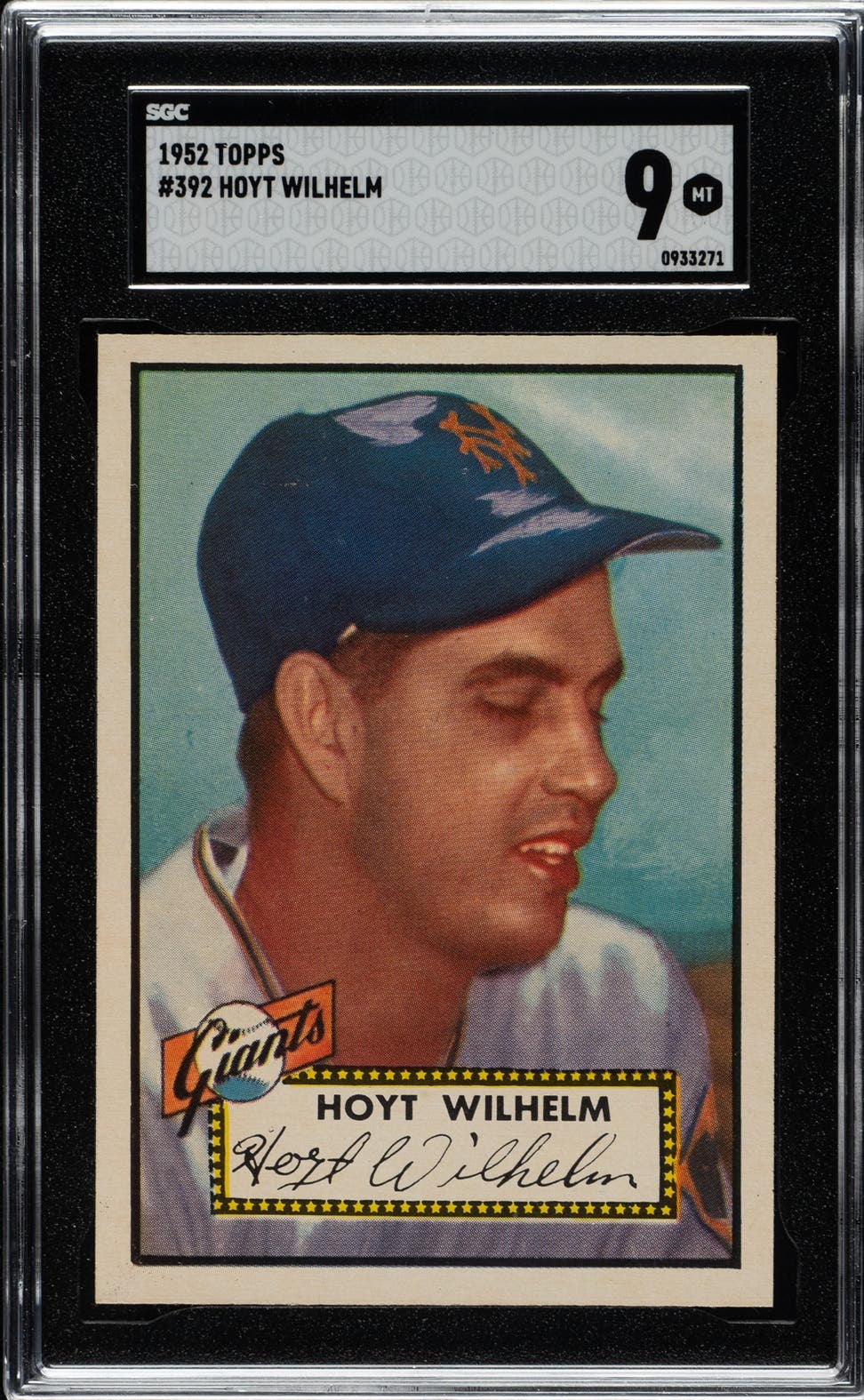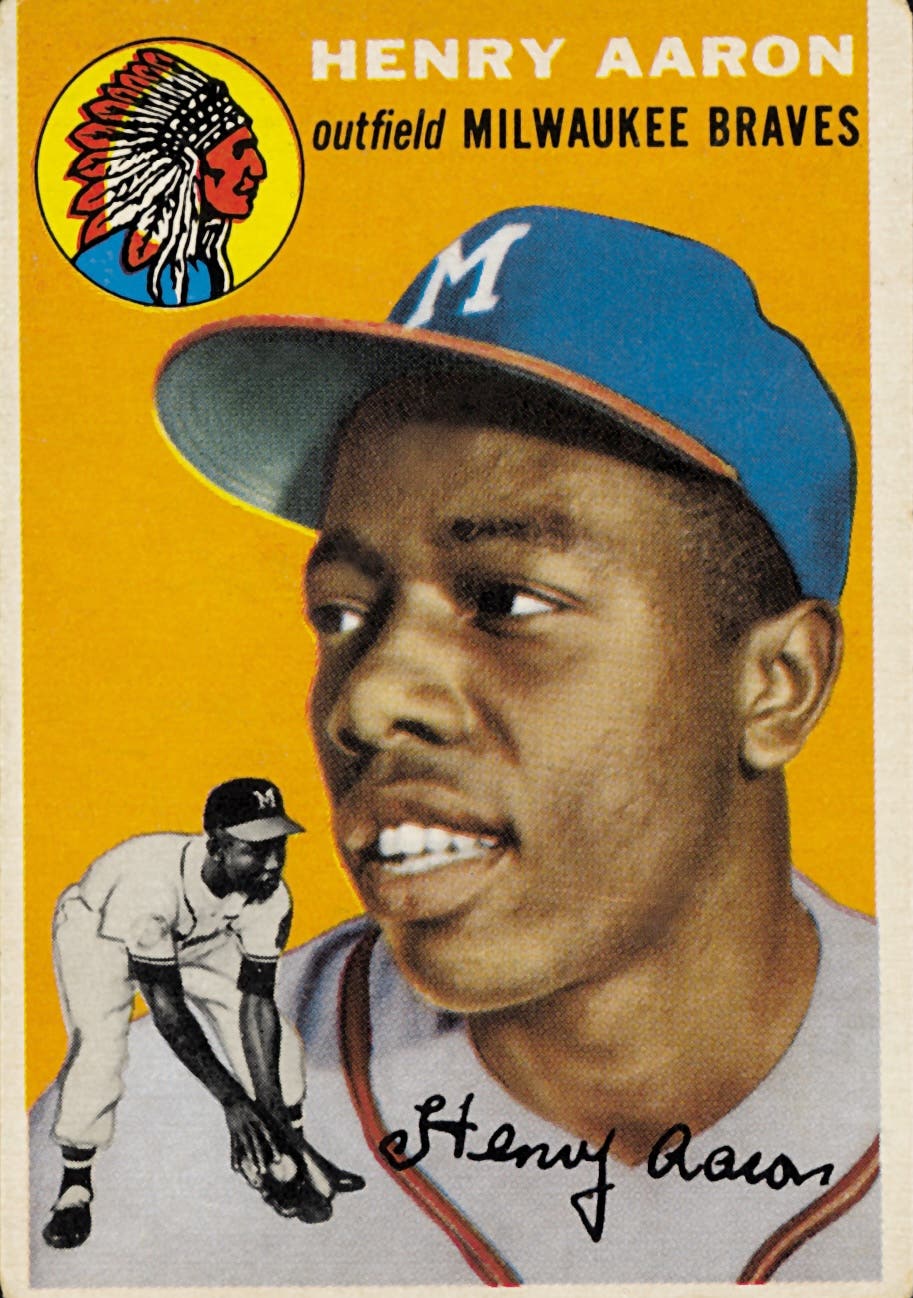News
New York Yankees manager Aaron Boone carries on the Boone family tradition
By Paul Post
A strong argument can be made that Ray, Bob, Bret and Aaron Boone are the First Family of Baseball.
When Bret – Aaron’s older brother – made his big league debut in 1992, the Boones became the first family ever to have three generations of players reach “The Show” and each one was an All-Star.
Aaron, a former third baseman like his late grandfather, Ray, is heading into his first year as manager of the New York Yankees’ star-studded lineup.
For a family so deeply entrenched in baseball, Aaron’s response is somewhat surprising when asked about his favorite collectibles.
“I have a lot of college and pro football helmets that are special and pretty cool,” he said. “I have Herschel Walker’s autograph on a Georgia helmet, and an Oklahoma State helmet signed by Barry Sanders.”
Of course, he also has many prized baseball possessions. The most unique collection is a set of bats autographed by other third basemen he played against such as the Atlanta Braves’ Chipper Jones, who is slated for induction this summer to the National Baseball Hall of Fame.
Boone and New York Giants rookie tight end Evan Engram put smiles on the faces of many other memorabilia collectors during a recent charitable fundraiser for the Center for Disabilities in Albany, New York. The event, which included an autograph session and telethon raised more than $2 million for the Center, which serves more than 12,000 people at 80 sites in 15 upstate New York counties.
Some fans arrived before dawn and waited hours, standing in long lines that snaked through the Radisson Hotel’s corridors, to be among the first people to get autographs.
Denise Morehouse of Saratoga Springs, New York, had Boone sign a photo of his dramatic walk-off home run that won the 2003 American League pennant, the climax of an epic seven-game series between the Yankees and Red Sox.
“I collect autographs and I enjoy doing it,” Morehouse said. “Plus this is a good cause. I always donate. I do it all the time.”
Kyle Fredericks of East Greenbush, New York, was on hand with his young nephew, Lucas, and sister-in-law, Jennifer Fredericks. Kyle Fredericks said he’s looking forward to big things from Boone and the Yankees in 2018.
“Absolutely!” he said. “I expect a World Series championship this year.”
The Yankees have one of the most powerful lineups in baseball as the 2018 campaign approaches. But Boone said there’s a lot of work to be done between now and October when they hope to win their 28th World Championship.
“If you want to go in loaded, we certainly feel on paper anyway that we have the potential to be an exciting team,” he said. “Now it’s up to us to get it done.”
He can’t wait to make out a lineup that features the likes of Giancarlo Stanton, Aaron Judge and Gary Sanchez, plus promising rookie third baseman Miguel Andujar.
“I can spell all their names,” Boone said smiling. “I plan on putting them in the middle of the order and getting out of their way.”
In terms of sheer power, the 2018 Yankees lineup is on par with the Ruth-Gehrig and Mantle-Maris eras of the late 1920s and early 60s, respectively.
Judge, the reigning AL Rookie of the Year, set a record for first-year players with 56 round-trippers in 2017, while Stanton, the National League MVP, blasted 59.
And Sanchez? All he’s done is homer 53 times in 177 games spread out over parts of two seasons.
Boone talked about his family’s place in baseball history, and how it laid the foundation for him becoming a major league manager. Only three other families have had three generations of big league ballplayers – the Bells, Colemans and Hairstons.
Aaron’s grandfather, Ray, had a stellar 13-year career from 1948-60, was a two-time All-Star with the Tigers in 1954 and ’56, and led the junior circuit with 116 RBI in 1955. However, his best season might have been 1953 when he hit .296 with 26 homers and 114 RBI.
Aaron’s father, Bob, was a four-time All-Star and seven-time Gold Glove award-winning catcher during a career that spanned from 1972-90 with the Phillies, Angels and Royals. He was a major contributor to Phils teams that reached the postseason five out of six years from 1976-81, including the 1980 World Championship. He was later inducted to the Phillies Wall of Fame.
The Angels acquired Bob after the 1981 campaign and he promptly helped the “Halos” win an American League West title, and again in 1986. The ’86 ALCS against Boston, which the Red Sox came back to win, was one of the most exciting postseason series ever played.
Upon retirement, Bob had caught a major league record 2,225 games, a mark later broken by Hall of Famer Carlton Fisk. Following his playing career, Bob spent parts of six seasons as a big league manager with the Royals (1995-97) and Reds (2001-03).
So Aaron can draw on his father’s experience in that department, too.
He got a firsthand look at his dad’s managerial style while playing for him for parts of three seasons from 2001-03, when he was traded in mid-season to the Yankees.
Aaron also learned valuable lessons from Hall of Fame former Yankees skipper Joe Torre, which he’s taken to heart.
“When I first came to New York as a player, Joe told me, ‘Don’t read the papers,’” Aaron said. “That’s a good takeaway.”
The biggest moment of Aaron’s career happened that year, one that’s forever endeared him to Yankees fans. With a crowd of 56,279 on hand at Yankee Stadium, Boone homered off Red Sox hurler Tim Wakefield in the bottom of the 11th inning to win Game 7 of the ALCS, sending New York to the 2003 World Series.
But Aaron’s days in Bronx Bomber pinstripes were short-lived.
He missed the entire 2004 season after suffering a knee injury while playing in an off-season basketball game, in violation of his contract. The Yankees released him and he was acquired by Cleveland, where he spent two years before rounding out his career with the Marlins, Nationals and Astros.
His career came to an end after undergoing open-heart surgery in March 2009, to replace a bicuspid aortic valve, a condition he’d been aware of since childhood, but which had recently worsened. He came back later that season, starting with a minor league assignment in August, and joined the Astros’ big-league team when rosters were expanded in September.
He hung up his spikes for good after playing his final game on Oct. 4, 2009.
In retirement, Aaron turned to the broadcast booth as a color analyst for ESPN. During the past couple of years, however, he began thinking about a return to organized baseball, perhaps as a coach or in a front-office job. But while calling games, he also found himself trying to anticipate the moves managers made, and thinking what it would be like if he were in their shoes.
“The game’s been pulling me a little bit and calling me,” he said.
A chance to manage the Yankees was one he couldn’t resist.
“Here we are,” Aaron said. “I feel blessed to have the opportunity and blessed to be part of a special group. I’m sure there will be lots of advice every time I do or don’t do something. That’s why it’s so fun to be a Yankee.”
Paul Post is a freelance contributor to Sports Collectors Digest. He can be reached at paulpost@nycap.rr.com.








